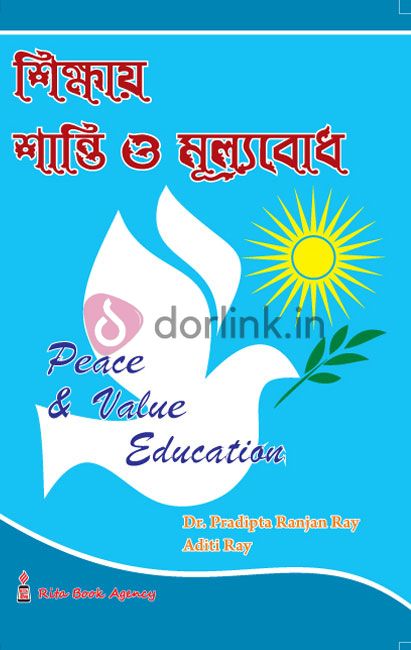×
Shikshay Santi o Mulyabodh [B.Ed 4th Sem- Ethics]
Writer : Dr. Pradipta Ranjan Ray & Aditi Ray
- Shipping Time : 4 Days
- Policy : Return/Cancellation?
You can return physically damaged products or wrong items delivered within 24 hours with photo/video proof.
Contact Customer Support for return initiation and receive return authorization via email. Securely package for return.
Refunds for eligible returns are processed within 7-10 business days via Bank Transfer.
Order cancellation allowed within 24 hours of placing it. Standard policy not applicable for undamaged/wrong product cases. Detailed info. - Genre : Educational>D.El.Ed/B.Ed./M.Ed.
- Publication Year : NA
- ISBN No : NA
- Binding : No Binding Available
- Pages : NA
- Weight : NA
- Height x Width x Depth : xx Inch
MRP : ₹100.00/-
Discount : 0% Off
Your Price : ₹100.00/-
MRP is subject to change as per edition/impression by the publisher.If so, it will be notified
About the Book
Unit I: Peace Educatio :
- Meaning, Concept, Aims, Objectives, Nature, Scope and Importance.
- Barriers of Peace Education—Psychological, Cultural, Political.
- Factors responsible for disturbing Peace: Unemployment, terrorism, Exploitation, suppression of individuality, complexes.
- Violence in School, home and society.
- Role of Peace Education in present context.
Unit II: Social Perspective of Peace Education:
- Justice—Social economics, Cultural and religions
- Equality—Egalitarianism, Education for all, equal opportunity
- Critical thinking: Reasoning and applying wisdom cooperation
- Learning to be and learning to live together
- Peace Education in Secondary Education curriculum.
Unit III: Value Education:
- Meaning, Concept, Nature and Sources of values.
- Meaning, Concept, Nature and scope of Value Education.
- Philosophical perspective, psychological perspective and sociological perspectives of Value Education.
- Values in Indian Constitution and Fundamental Duties of citizens.
Unit IV: General Idea about Values:
- Classification of Values
Personal and social values
- a) Intrinsic and extrinsic values on the basis of personal interest & social good.
- b) Social, moral, spiritual and democratic values on the basis of expectation of society & one’s self inspiration
- Identification of Analysis of emerging issues involving value conflicts
- Design and develop of instructional material for nurturing values
- Characteristics of Instructional material for values.
Unit V: Methods & Evaluation of Value Education:
- Traditional Methods: Story Telling, Street Play & Folk Songs
- Practical Methods: Survey, role play, value clarification, Intellectual discussions
- Causes of value crisis: material, social, economic, religion evils and their peaceful solution
- Role of School Every teacher as teacher of values, School curriculum as value laden
- Moral Dilemma (Dharmsankat) and one’s duty towards self and society

